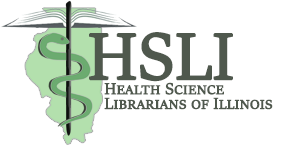(via ACRL)
Teresa Helena Moreno, Librarian + Undergraduate Engagement Coordinator at the University of Illinois at Chicago’s Daley Library, is the ACRL Member of the Week. The Member of the Week interview is below, and it is also available on the ACRL website.
Describe yourself in three words
Tenacious, empathetic, political.
What are you reading (or listening to on your mobile device)?
I am currently making my way through Jennifer C. Nash’s latest book titled “Black Feminism Reimagined: After Intersectionality”. I had the opportunity to hear Nash speak at a conference about her scholarship years before and I have been looking forward to reading her book. Her work is looks at the relationship between feminism and the theory of intersectionality. She maps the term on to the field of feminist studies as well as other institutions such as the National Women’s Studies Association to highlight the way the theory has operated in the disciplines and feminist institutions. She’s really breaking the connections down in ways I had not considered prior to engaging her work. It’s been an informative read so far!
Describe ACRL in three words
Collegial, resource, important.
What prompted you as a student to join ACRL?
What prompted you as a student to join ACRL? I joined ACRL as a student because I wanted to get a jump start on networking and building community with future colleagues. I wanted to be sure to be connected to my colleagues to keep a pulse on what the trends were in academic libraries as well as to make sure my voice was also incorporated into our field’s discourse early on in my library career.
What are your career goals? How might ACRL help you achieve those goals?
Librarianship was a mid career shift for me and so I entered into the field with knowing that some day I would end up in a leadership position–as an AUL, dean, director, etc. I am currently focused on practicing librarianship so that I can more fully understand how to lead. I am looking to ACRL to not only keep me abreast of the key movements and developments within the field, but also to be in touch with leaders within our field to continue to grow and expand my skill set.
In your own words
Much of my time as an academic librarian is to help create pathways for the researcher to see how information is shaped and molded as well as to challenge what we know as being absolute. Prior to becoming a librarian, my academic home was in interdisciplinary academic departments, namely Black Studies and Women’s and Gender Studies. Because of this, my theoretical framework and approach to librarianship is one that is rooted in these academic fields. I work with researchers to better understand that libraries and their archives are imagined spaces. They comprise information that is skillfully managed and curated by librarians’ imaginations and creativity, but there are limitations as well as the need for critique of our curatorial choices. In my work as both an educator and librarian, I work with researchers to examine the production of knowledge–who and what gets left out of narratives, why certain narratives are so hard to find, and how and why pieces of history and stories are framed the way they are.
